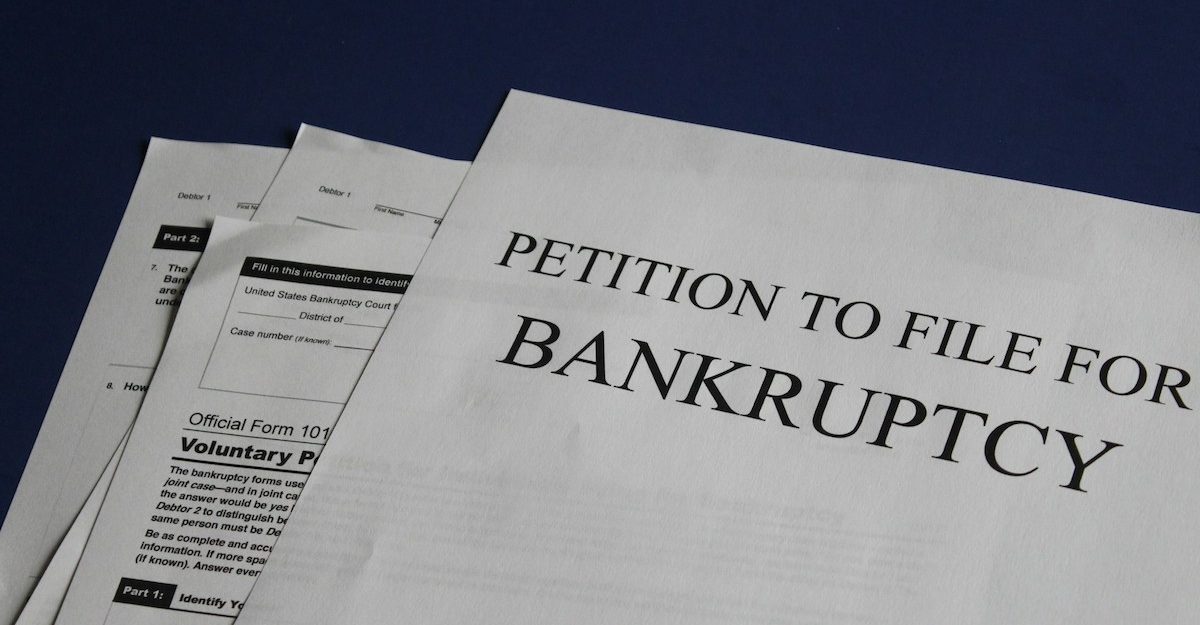Bankruptcy in Canada: Guide for Employees

What happens to employees when a company goes bankrupt?
When a company in Canada files for bankruptcy or begins restructuring under the Companies’ Creditors Arrangement Act (CCAA), employees are often left wondering what happens to their jobs, severance pay, and benefits.
At Samfiru Tumarkin LLP, we’ve helped thousands of non-unionized employees navigate mass layoffs and severance negotiations when companies close down or downsize.
However, when an employer is under CCAA protection or has legally declared bankruptcy through the courts, employees often face a very different reality – one where there is no legal action they can take to recover severance pay, and limited compensation is available through government programs.
This guide is designed to provide clear information about what happens to non-unionized employees when a company goes bankrupt in Canada, and the limitations they need to be aware of during these difficult situations.
What is bankruptcy in Canada?
Bankruptcy is a legal process in Canada where a company, unable to pay its debts, surrenders its assets to a licensed insolvency trustee. The trustee sells off these assets to repay secured creditors first, and then unsecured creditors if funds remain.
Bankruptcies are governed by two main laws:
- The Bankruptcy and Insolvency Act (BIA)
- The Companies’ Creditors Arrangement Act (CCAA) (for companies with debts over $5 million)
Once the process is complete, the company is typically shut down and discharged from its debts.
WATCH: Toronto employment lawyer and partner David Vaughan spoke to Global News about rights for Sears Canada employees after the decades-old retailer declared bankruptcy.
If a company goes bankrupt, what happens to employees?
When a company goes bankrupt in Canada, employees are often terminated without proper notice or severance pay.
Here is a breakdown of what happens:
- Employment is Terminated: In most bankruptcies, the company closes permanently and employees lose their jobs immediately.
- Employees Become Unsecured Creditors: Unpaid wages, vacation pay, termination pay, and severance pay owed before bankruptcy are treated as unsecured debt.
- Secured Creditors – such as banks – are paid first from the liquidation of the company’s assets
- Unsecured Creditors, including employees, are last in line and often recover little or nothing.
- You Can’t Sue During CCAA Protection: When a company restructures under CCAA, the court issues a stay of proceedings. This means:
- You can’t sue the company for unpaid wages, severance, or termination pay while the process is active.
- Employees have no ability to enforce their rights until the CCAA process ends – and by then, there may be nothing left.
Do employees get severance pay when a company declares bankruptcy?
In theory, yes, employees are owed severance pay when they are terminated – whether the company closes or not.
But when an employer declares bankruptcy through the BIA or CCAA, employees become unsecured creditors.
This makes it highly unlikely they will receive their full severance pay, as there is often not enough money left to pay unsecured debts after secured creditors are paid.
Can employees sue for unpaid wages or severance during CCAA restructuring?
No. When a company restructures under the Companies’ Creditors Arrangement Act (CCAA) – considered Canada’s equivalent of the US Chapter 11 bankruptcy process – a court-ordered stay of proceedings prevents employees from suing for:
- Unpaid wages
- Severance pay
- Termination pay
- Any additional compensation
This legal barrier stays in place for the duration of the restructuring process.
How does bankruptcy affect current employees?
While a company is restructuring, some employees may be kept on temporarily. However, if the company:
- Fails to restructure, or
- Moves to liquidation and bankruptcy, most or all remaining employees will be laid off and become unsecured creditors.
Benefits and pensions may also be affected.
The Wage Earner Protection Program (WEPP)
The Wage Earner Protection Program (WEPP) offers some financial support for employees of bankrupt or insolvent companies.
WEPP covers:
- Unpaid wages
- Vacation pay
- Termination pay
- A small amount of severance pay
WEPP limits (2025):
- Employees can receive a one-time payment of up to an amount equivalent to 7 times the maximum weekly insurable earnings under the Employment Insurance Act
- Maximum payment is $8,844.22 for 2025.
- This amount often covers only a portion of what employees are owed.
What happens to pensions and benefits if an employer goes bankrupt?
- Pensions: If a pension plan is fully funded and separate from the company’s assets, it may be protected. If it’s underfunded, employees may received reduced benefits.
- Health and Dental Benefits: Typically terminated immediately when a company shuts down.
Can a company close without declaring bankruptcy?
Yes. If a company closes permanently without declaring bankruptcy under the BIA or CCAA:
- Employees are still entitled to full severance pay, which can be as much as 24 months’ pay due to many factors.
- Employers sometimes claim they’re going bankrupt but don’t actually file through the court.
- In these cases, employees can pursue severance with the help of an employment lawyer at Samfiru Tumarkin LLP.
WATCH: Ottawa employment lawyer and partner Alex Lucifero was interviewed by CTV News about how severance work when a company closes.
Our Advocacy: The Sears Act
At Samfiru Tumarkin LLP, we saw first-hand how Sears Canada employees lost their jobs, severance, and pensions during the company’s bankruptcy.
That’s why we are leading the call for the Sears Act—proposed legislation that would:
- Give employees secured creditor status in bankruptcies
- Ensure employees are paid first, before banks and landlords
When should you contact an employment lawyer?
You should contact Samfiru Tumarkin LLP if:
✅ Your employer closes down but doesn’t file for bankruptcy
✅ Your employer threatens bankruptcy, but hasn’t filed through the BIA or CCAA
✅ You need help understanding your rights to severance pay if the closure isn’t part of a formal bankruptcy process
In these situations, you may be entitled to up to 24 months’ pay, and we can help you enforce your rights.
Our employment lawyers have helped tens of thousands of individuals across Ontario, Alberta and B.C. enforce their rights. If you are a non-unionized employee who needs help with an employment issue, contact us or call 1-855-821-5900 to get the advice you need, and the compensation you deserve.
⛔ UNIONIZED? You must consult your union representative regarding termination, severance pay, and other workplace issues. These matters are governed by your collective bargaining agreement. By law, employment lawyers can’t represent unionized employees with these issues.
Bankruptcy and Restructuring in Canada: Notable Companies
Here’s a list of Canadian companies that have filed for bankruptcy or restructuring:




